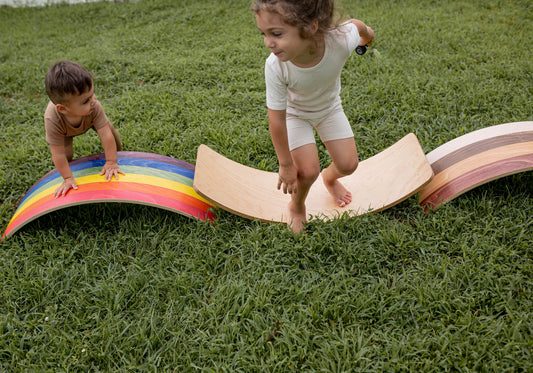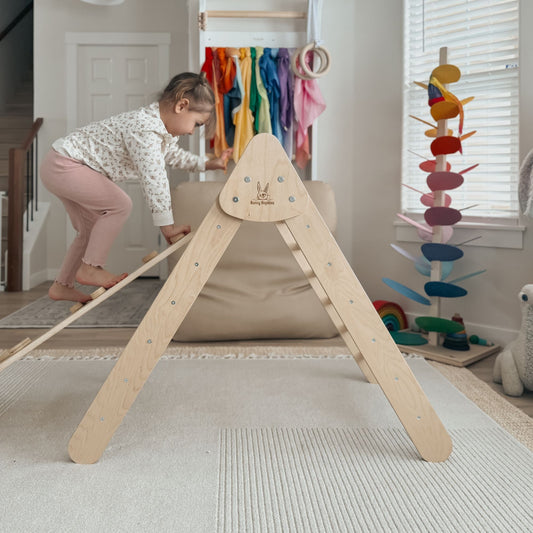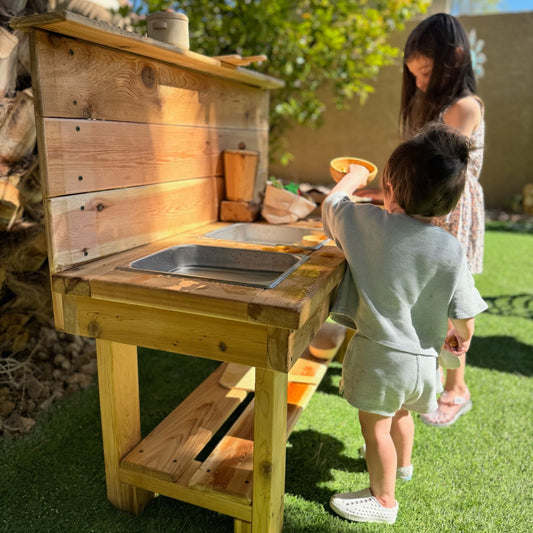
Raising Capable Kids: Why Chores, Unstructured Play, and Letting Go Matter
Shamik DasguptaShare
We grew up doing chores in our house. We washed the dishes (one washed, the other dried). When we got a little older we rotated between dusting and cleaning bathrooms. And, of course, our room was to be kept neat. It didn’t come without pushback, mind you — no 10-year-old was excited to dust on a Saturday morning ever in the history of time…even me!
As teens we balanced this with sports, school work and friend time. We weren’t an allowance family either… chores were just part of growing up, learning, and sharing in the household. Later in life, we had our teen do his own laundry and make his lunch. All of these are life skills that adults need to know how to do…to be a good roommate, a good partner, and to run a house.
We’ve been reading more about the concept of “parenting yourself out of a job,” meaning that a parent's primary role is to guide and support their child’s development, ultimately leading them to become independent and self-sufficient. That’s the ultimate goal, right? To raise your children to become fully functioning adults.
It’s hard to let go sometimes. We feel that doing things for them shows our love and dedication — that often makes us feel good too. And truthfully, sometimes it’s just easier to do it ourselves (it’s faster, there’s less arguing, and we know it’s done “right”). So, when do we start guiding and teaching instead of doing for our children? The research says the sooner the better. Very early on, you can start fostering this independence through age-appropriate chores, personal responsibilities, and (my personal favorite) unstructured play.

I am not an expert at much, but I do know play, so that’s what I’ll focus on. Letting kids choose what they play with and how they play is a great first step. Reminder: you’re not there to entertain your children. Allowing and encouraging unstructured play helps them develop problem solving skills, fosters creativity, and gives them the freedom to learn at their own pace. Sometimes stepping back is letting them do things that push their boundaries. Outdoor play is perfect for this as I talk about here.
Often, it’s letting them explore their way of doing things through play. We know that the stacking rings have an “order” … but do they? And does it really matter if their costume is mis-matched when they’re role playing? (No, and actually, it’s usually cuter that way.) And sometimes it’s smiling through gritted teeth as they mix all the colors of the playdough together. It’s hard, but worth it!
As early as 2 you can start to involve children in the post-play clean up. This teaches them to take responsibility and care for their possessions. Organizing, gathering pieces, sorting the toys, and putting them “to bed” for the night are early learning skills for more responsibilities as they grow and develop. These play patterns and clean-up skills all foster the sense of self-confidence kids need as they get older and will help as you start to teach them good life habits. I can’t promise they’ll ever love dusting, but we can’t win every battle.
Here are some recent articles that we like that go beyond play and help with guidance on introducing chores into children's routines…
- Check out this guide for age appropriate chores
- A fun program to follow is called “Let it Grow” helps children take steps toward responsibility within the home
- Watch this discussion on chores and allowance



